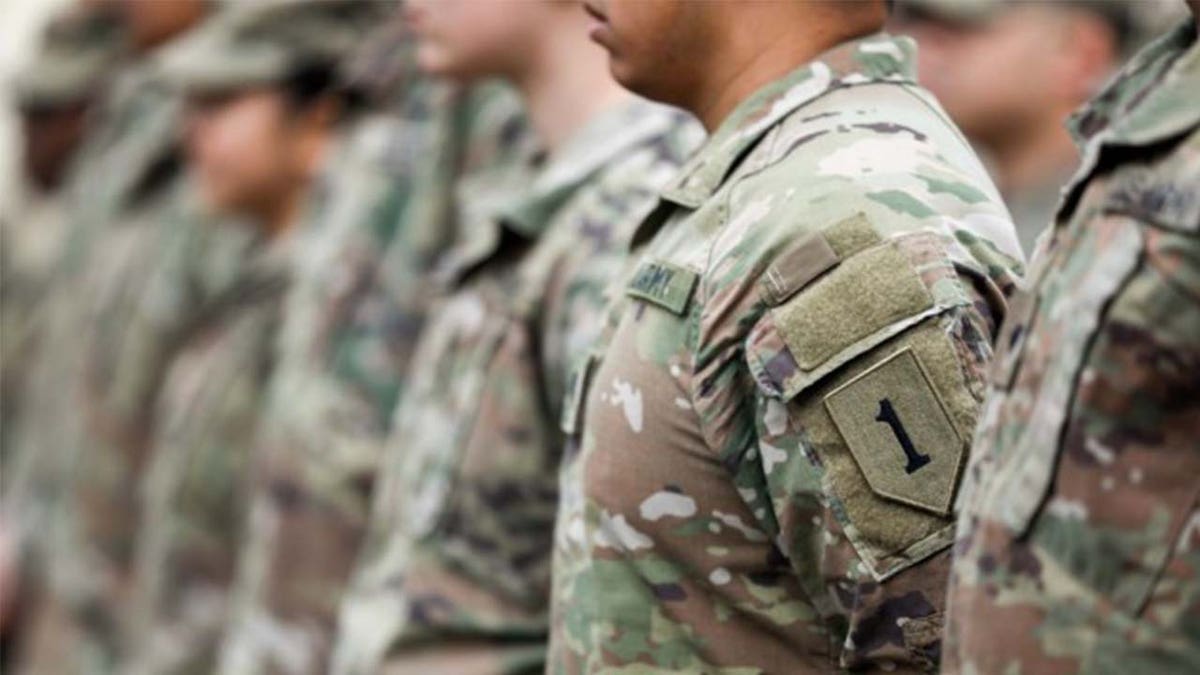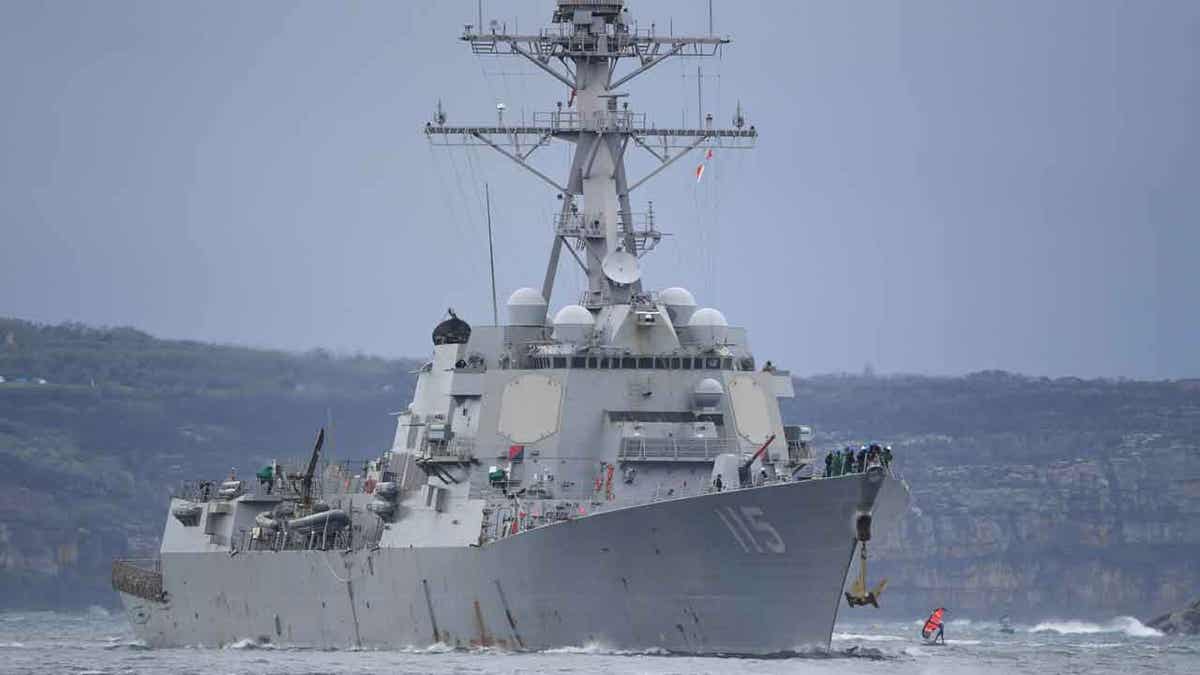Biden administration admits China shows increasing military aggression
Fox News senior correspondent Eric Shawn reports on China’s aggressive military behavior and congressional reaction on ‘The Story.’
America’s All Volunteer Force turns 50 this year. Since 1973, the U.S. military has, with rare exceptions, met its annual recruitment goals and improved the quality of the force.
Now, however, it is mired in its worst recruiting stretch in history. Last year, the Army missed its recruiting goal by 25% and already predicts it will miss again in 2023. Ditto the Air Force and Navy.
Officials cite numerous reasons for the shortfall: low unemployment, a smaller pool of young people qualified to serve, declining public confidence in the military and more. Whatever the reasons, these recruiting failures portend trouble for military readiness.
DEFIANT GEN. MILLEY INSISTS CLAIMS OF WOKENESS IN U.S. MILITARY 'GROSSLY OVEREXAGGERATED'
But perhaps the greater misfortune is that, until this trend changes, thousands of young Americans will miss out on opportunities to better their current circumstances, learn important leadership and life skills and indeed become better citizens.

The Army missed its 2022 recruiting goals by 25% and things look bleak for 2023 as well. (U.S. Army)
Apart from the inherent virtue garnered by serving the country, the U.S. military offers one of the most reliable means for young Americans to transcend their circumstances and achieve upward mobility. At a time when an overwhelming percentage of Americans lack confidence their children will be better off than they are, the military provides a proven path for young people to develop critical skills and build a better life.
One study concluded that enlisting in the Army increased average annual earnings over $4,000 in the 19 years following entry into service. Another study suggested that the effect was most profound in Black families.
Countless stories of how the military opened opportunity for young people go unreported. One that did not was that of Javier Galvan. Born into poverty, Galvan struggled in high school but happened to hear a Marine recruiter’s pitch one day in class and was intrigued.
After a stint in the Marines with deployments to both Iraq and Afghanistan, Galvan decided to become a doctor. Today, he is a radiology resident at Cedars-Sinai Medical Center. Galvan says, "Joining the military helped me to overcome my circumstances."
Like all human endeavors, the military is not perfect, but it a highly functioning meritocracy. As such, it offers young people a path to success in a society where upward mobility is increasingly harder to attain.
Military service also instills values that make young people better citizens and employees. Veterans vote at a higher percentage than their peers and contribute more community volunteer hours than non-veterans — on average, 95 hours vs. 74 hours per year.
Veterans are also more attractive to employers. Companies appreciate that candidates who have completed military service are more selfless, have the ability to lead others, and possess self-discipline.
For many American youth, student loan debt is a crushing burden. But those who undertake military service can normally escape college loans and be freer to pursue the path of their choosing; either while in the armed forces or after.

The Navy also missed its recruitment goals. FILE: The USS Rafael Peralta, an Arleigh Burke-class destroyer in the US Navy, arrives into Sydney Harbour on July 10, 2021, in Sydney, Australia. (James D. Morgan/Getty Images)
So why the recruitment shortfalls? In addition to the factors already mentioned, part of the problem is that growing numbers of Americans now view attending college immediately after high school as the sole path to success.
Parents, teachers, and guidance counselors all push 62% of high school seniors directly to college, while a stigma has developed around any other alternative, including military service or "blue-collar" jobs. In addition to societal expectations, this push by schoolteachers and administrators is fueled by metrics that "grade" high schools on the percentage of their students that go on to attend college.
It doesn’t help that high school guidance counselors providing career advice to students often are uninformed on military opportunities. The required credentials to be a guidance counselor emphasize skills in mental health disorders, behavioral distress, bullying and substance abuse — not an awareness of alternative career opportunities.
CLICK HERE TO GET THE OPINION NEWSLETTER
What little knowledge of military careers they possess often is gained through popular culture such as movies and tv shows. Typically, they get it wrong.
Countless stories of how the military opened opportunity for young people go unreported. One that did not was that of Javier Galvan. Born into poverty, Galvan struggled in high school but happened to hear a Marine recruiter’s pitch one day in class and was intrigued.
To fix this situation, America must both reacquaint its citizens with its military and celebrate those who opt to serve. A mere "thank you for your service" isn’t enough. There should be a tangible demonstration that acknowledges military service as a noble pursuit and recognizes that military service strengthens society by producing more resilient, successful, and capable young men and women.
Teachers, counselors, and school administrators should bring in veterans or servicemembers to talk to students about how the military has helped them. And politicians, celebrities and other influencers should speak on the virtues of service.
CLICK HERE TO GET THE FOX NEWS APP
And for those that do raise their right hand and swear an oath to serve, it’s important to publicly thank and recognize them for that choice. Young people notice how society treats members of various professions. Honoring High School seniors at their graduations and related ceremonies for enlisting in the military goes a long way to changing how Americans view service in the military.
That America’s military is struggling to attract volunteers carries danger for our national security. But it also means that tens of thousands of young people are missing out on life-changing opportunities. Together we must turn that trend around, or America will be the worse for it.
CLICK HERE TO READ MORE BY THOMAS W. SPOEHR
Dr. Ken Hartman is founder and president of Our Community Salutes, a nonprofit organization that recognizes high school seniors who plan to enlist in the military immediately after high school.





















